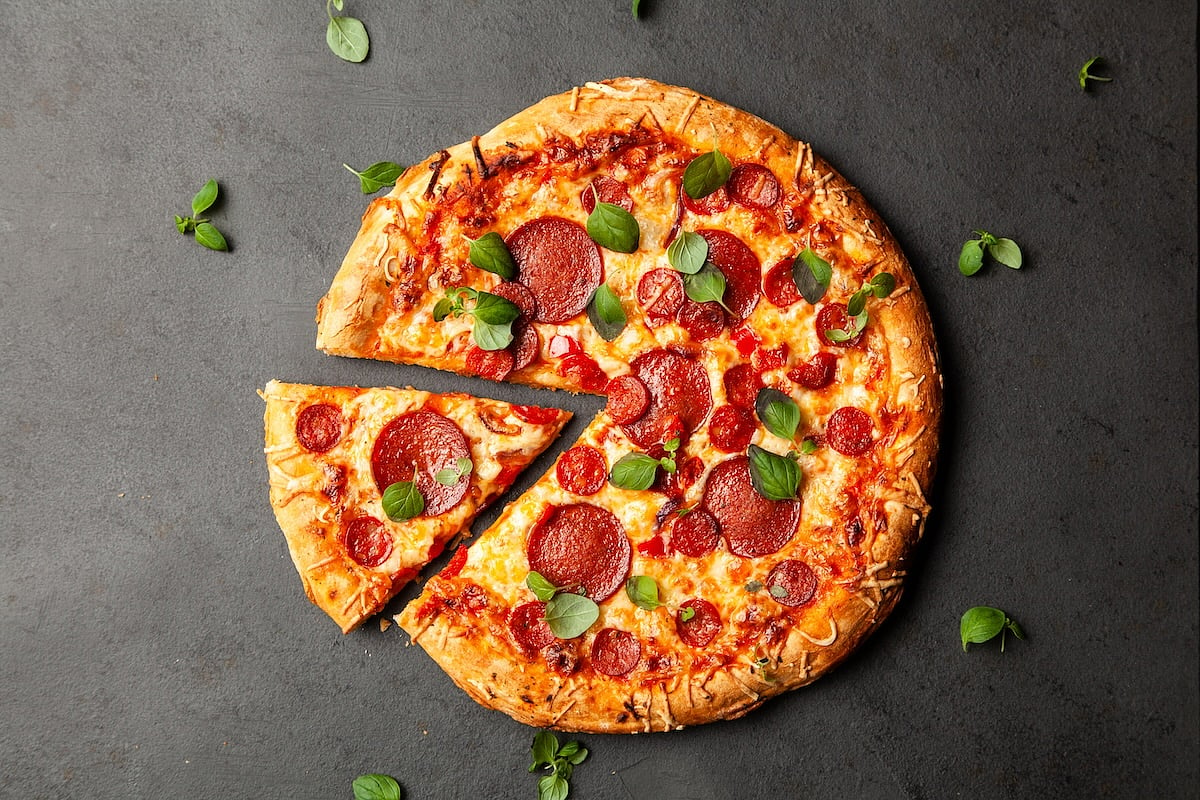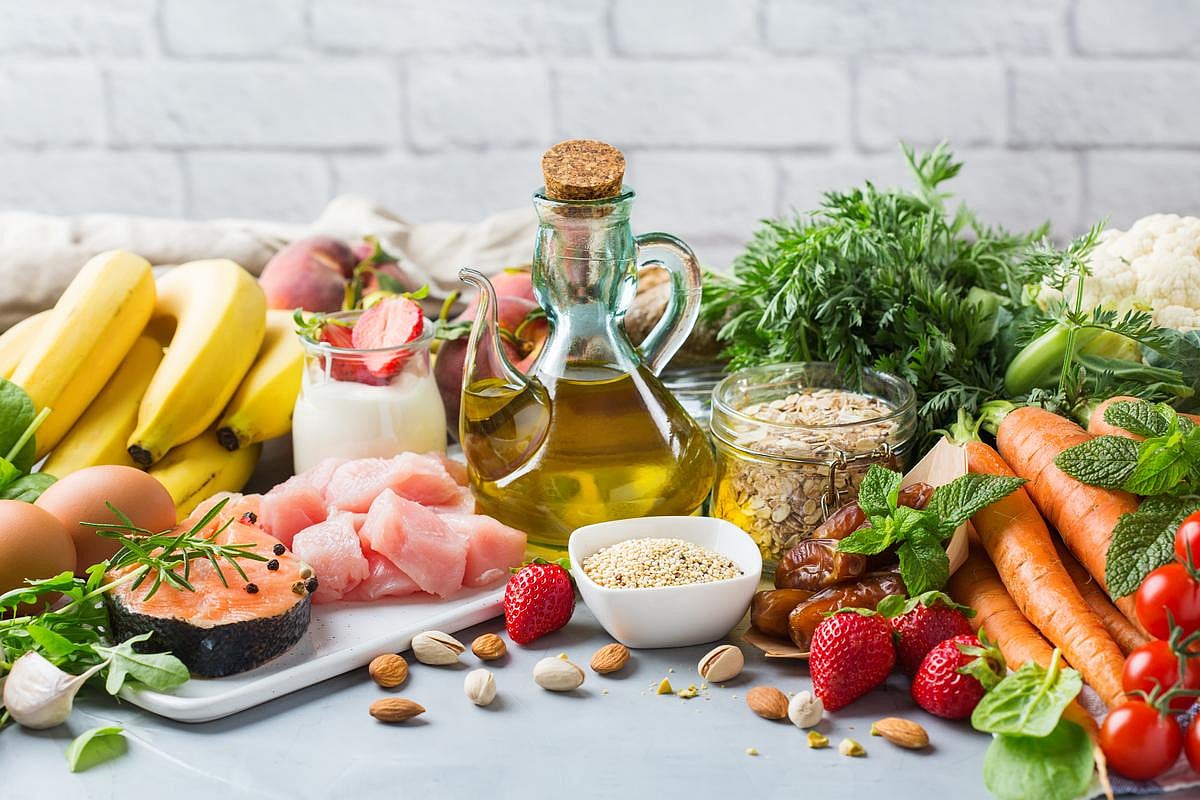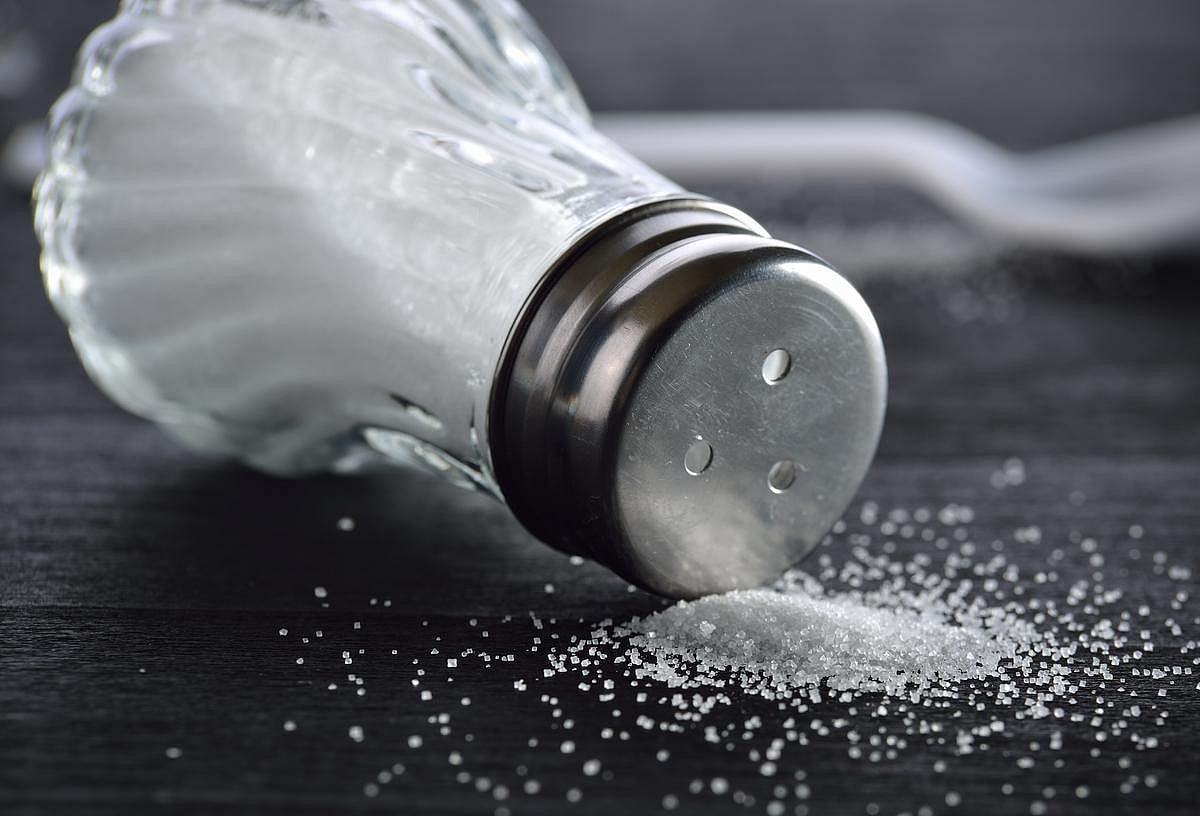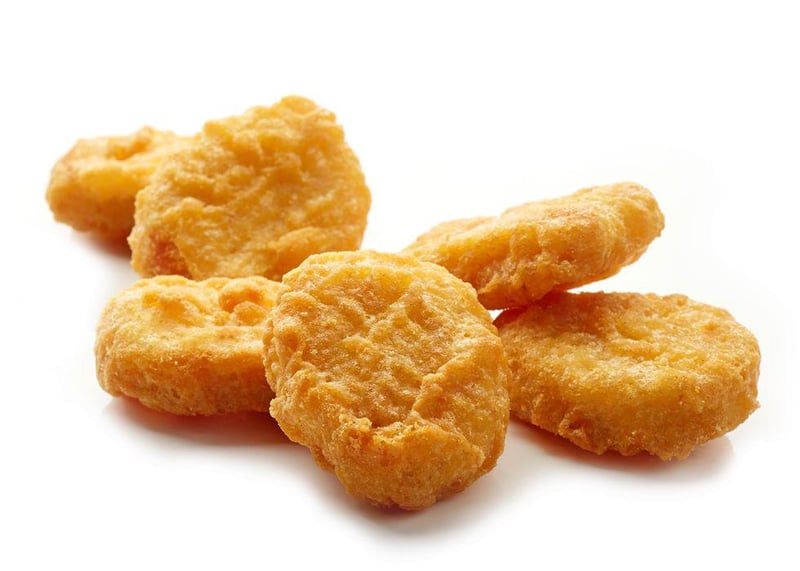Get Healthy!
Results for search "Dieting To Control Salt".
Health News Results - 19
Most people with high blood pressure aren’t skipping the salt shaker in favor of a salt substitute, according to a new study.
Incredibly few Americans use salt substitutes, essentially waving aside a simple and effective way to manage their blood pressure, researchers repo...
- Dennis Thompson HealthDay Reporter
- |
- September 5, 2025
- |
- Full Page
These days Americans can agree on few things, but unfortunately, pizza, soup and chicken aren’t among them, a new study says.
Those three foods are some of the main sources of sodium for Americans of all racial and ethnic groups, contributing to high blood pressure and hea...
- HealthDay Reporter
- Dennis Thompson
- |
- May 29, 2025
- |
- Full Page
How should a person eat in middle age to protect their health as they grow older?
One diet came out a clear winner in a 30-year study involving more than 105,000 men and women and eight diets, researchers reported in the journal Nature Medicine.
People whose dietary pattern more closely stuck to the Alternativ...
- HealthDay Reporter
- Dennis Thompson
- |
- March 25, 2025
- |
- Full Page
Did you know that sodium is the bad guy in salt, raising your risks for high blood pressure and other heart ills?
Luckily for Americans, the U.S. Food and Drug Administration is working to make it easier for you and your family to eat food with less sodium.
...
- HealthDay Reporter
- Robin Foster
- |
- October 19, 2024
- |
- Full Page
Emboldened by success in its initial efforts to cut dietary salt intake by Americans, the U.S. Food and Drug Administration on Thursday announced Phase II of the endeavor.
U.S. Dietary Guidelines recommend that a person consume no more t...
- HealthDay Reporter
- Ernie Mundell
- |
- August 15, 2024
- |
- Full Page
Doctors already warn folks off salt due to its heart risks, but new research suggests sodium isn't helping your skin either.
Researchers found that as daily salt intake rose, so did the odds for the skin disorder eczema, also known as atopic dermatitis.
"Restriction of dietary sodium intake may be a ...
- HealthDay Reporter
- Ernie Mundell
- |
- June 5, 2024
- |
- Full Page
Cutting back on sodium is crucial to treating heart disease, but most heart patients aren't able to limit their salt intake, a new study finds.
On average, people with heart disease consume more than double the daily recommended amount of salt, researchers report.
Sodium is essential for human health, but taking in too much can raise blood pressure, which damages blood vessels and f...
- HealthDay Reporter
- Dennis Thompson
- |
- April 2, 2024
- |
- Full Page
Replacing regular salt with a salt substitute can reduce high blood pressure in older adults, a new study has found.
Older adults who use a salt substitute are 40% less likely to develop high blood pressure compared to those who use regular salt, according to findings published Feb. 12 in the Journal of the American College...
- HealthDay Reporter
- Dennis Thompson
- |
- February 13, 2024
- |
- Full Page
Folks who habitually add an extra sprinkle of salt to their meals are doing no favors for their kidneys, new research confirms.
The finding held even after researchers accounted for other health issues, such as being overweight, not exercising or smoking and/or drinking.
The bottom line: "Adding salt to foods is associated with increased risk of chronic kidney disease in the general...
- HealthDay Reporter
- Ernie Mundell
- |
- December 29, 2023
- |
- Full Page
Cutting out just one teaspoon of salt every day lowers blood pressure almost as much as medication does, new research shows.
Investigators said theirs is one of the largest studies ever to include people taking high blood pressure meds in a look at the effect of reducing dietary intake of sodium.
"We found that 70-75% of all people, regardless of whether they are already on blood pr...
- HealthDay Reporter
- Carole Tanzer Miller
- |
- November 13, 2023
- |
- Full Page
As many as 1 in 3 people who fall ill with COVID-19 will develop long COVID, with symptoms that can persist for months or years, a new study estimates.
Nearly half of participants (47%) in a large-scale U.S. Census Bureau survey said they had been infected with COVID-19 by the end of 2022, the data showed.
Further, 1 in 7 (14%) Americans said they had developed long COVID, with 7% s...
- HealthDay Reporter
- Dennis Thompson
- |
- November 3, 2023
- |
- Full Page
It's time to turn your clocks back this Sunday, and a leading group of sleep experts want that return to standard time to be permanent.
The American Academy of Sleep Medicine (AASM) has issued a new position statement recommending the elimination of seasonal time changes.
About 20 other health organizations have signed that statement, which sleep experts say aligns best with the hum...
- HealthDay Reporter
- Cara Murez
- |
- November 3, 2023
- |
- Full Page
Put down the saltshaker -- especially if you're at risk of type 2 diabetes.
While the condition brings to mind the need to avoid sugar, a new study links it to frequent salt consumption.
"We already know that limiting salt can reduce the risk of cardiovascular diseases and hypertension, but this study shows for the first time that taking the saltshaker off the table can help prevent...
- HealthDay Reporter
- Cara Murez
- |
- November 3, 2023
- |
- Full Page
Instead of adding salt to their meals, older adults can use spices to give their food more zip and keep their blood pressure under control, new research suggests.
"We were working specifically with a population of older adults to see if we could reduce the amount of salt in a product and then tailor it to their tastes," explained study leader Carolyn Ross. She is a professor of food scien...
- HealthDay Reporter
- |
- February 8, 2022
- |
- Full Page
Folks who are determined to shed some pounds in the New Year face a bewildering array of fad diets and quickie weight-loss schemes.
Those weighing eating patterns and diet plans such as intermittent fasting, the
Americans in the prime of their lives are worried about the pounds they packed on during the pandemic and plan to do something about it in the new year, a new Harris Poll/HealthDay survey finds.
Nearly 2 of every 3 U.S. adults (63%) plan to change up their diet in 2022, either by eating less or cutting back on specific foods, poll results reveal.
Adults between the ages of ...
- HealthDay Reporter
- Dennis Thompson
- |
- December 20, 2021
- |
- Full Page
China and the United States are super powers of salt consumption.
The two world leaders emerged with the highest salt levels in processed meat and fish products among five countries assessed in a new study.
High salt levels in food is a major cause of high blood pressure and its related risks of heart and kidney diseases and death. The World Health Organization recommends a maximum ...
- HealthDay Reporter
- Robert Preidt
- |
- October 19, 2021
- |
- Full Page
The U.S. Food and Drug Administration announced Wednesday that it is lowering the recommended levels of sodium in processed, packaged and prepared foods.
The goal of the new, voluntary guideline is to help reduce Americans' average sodium intake from 3,400 milligrams (mg) to 3,000 mg per day -- roughly a 12% reduction -- over the next 2.5 years.
"It's really a pivotal day for the he...
- HealthDay Reporter
- Steven Reinberg and Robert Preidt and Robin Foster
- |
- October 13, 2021
- |
- Full Page
People with high blood pressure that doesn't respond to treatment may have more success by following the DASH diet and joining a supervised diet and exercise program, a new study suggests.
DASH is short for Dietary Approaches to Stop Hypertension -- a regimen rich in fruits, vegetables, low-fat dairy products and limited salt.
Duke University researchers found it can help people wit...
- HealthDay Reporter
- Steven Reinberg
- |
- September 27, 2021
- |
- Full Page

.jpg?w=1920&h=1080&mode=crop&crop=focalpoint)























